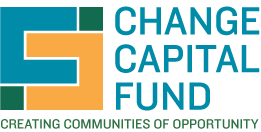A new report from the Change Capital Fund, a collaborative of New York City’s leading banks and foundations, offers a cache of ideas from and for low-income neighborhoods across the city. The report, Innovations, Ideas to Make NYC Neighborhoods More Livable, Sustainable and Resilient, summarizes the 30 proposals submitted from New York City to the Environmental Protection Agency’s Community Change Grant Program last year.
Press Room
Innovations: Ideas to Make NYC Neighborhoods more Livable, Sustainable and Resilient
Change Capital Fund found a treasure trove of forward-looking ideas to make New York City neighborhoods more livable, sustainable and resilient in the proposals submitted from New York City organizations and agencies to to the Environmental Protection Agency’s (EPA) Community Change Notice of Funding Opportunity.
CCF EJ/CJ Fund Awards 10 Grants to Support Access to Federal Funding
CCF Helps Bring New Federal Funds to NYC Neighborhoods Change Capital Fund, a 21-member collaborative of banks, foundations and intermediaries, is awarding 10 NYC environmental justice organizations grants to help them benefit from a flood of new federal resources to realize their community’s visions for healthy, sustainability and resiliency. The Inflation Reduction Act, unarguably the […]
CCF Grantees, City Officials Call for Increased Community Ownership
As gentrification and unaffordable rents intensify pressures on New York City’s low-income residents, the movement for community ownership has been building. At a recent panel, hosted by the Change Capital Fund, City officials supported the calls of Change Capital Fund’s grantees for new policies, increased investment and urgency in deploying land and buildings for community […]
Change Capital Fund’s New Grantees Signal Increased Momentum for Community Ownership
Change Capital Fund, a 20-member collaborative of banks, foundations, intermediaries and the Mayor’s Office for Economic Opportunity, recently selected a new round of grantees which are advancing projects to repurpose un- or under-used public land or buildings as community assets. The eight projects, led by communities of color, will create new, permanently and deeply affordable rental housing or home-ownership opportunities, open spaces, community facilities, cooperatively-owned food businesses and/or food hubs. The projects will be controlled by community members.
Change Capital Fund Provides Fuel for Growing Community Ownership Movement
The Change Capital Fund, a collaborative of 21 institutions, including banks, foundations, intermediaries and the City of New York, will be adding momentum to neighborhood campaigns to permanently put land and buildings into community control.
Essential Yet Invisible
As New York City absorbed the shock that the raging COVID-19 virus would necessitate the city’s shut-down and schools and businesses locked their doors, so, did the staff of community-based organizations head home.
Essential But Invisible: Community Organizations in the Time of Covid
A report issued by Change Capital Fund, a collaborative of 15 funders, demonstrates the life-saving contributions of community-based organizations during the intersecting crises of the past year. The report, Essential But Invisible: Community Organizations in the Time of Covid, details the essential services provided by community development corporations amidst public health, racial and economic justice crises.
Opinion: The City’s Nonprofits are Also Essential
Working from home, Good Old Lower East Side (GOLES) Executive Director Damaris Reyes has activated the emergency mode for LES Ready!, a coalition created during Hurricane Sandy, to coordinate the actions of some thirty nonprofits in Lower Manhattan in times of disaster. In the midst of the COVID-19 pandemic, LES Ready! Members are calling on […]
CCF Donors Respond to MDRC Final Evaluation Report
CCF appreciates MDRC’s final evaluation report and the feedback we have received as part of a formative evaluation of our first cycle (2014-18). View the MDRIC Final Evaluation Report CCF’s goal is to build the capacity of community anchor organizations to increase economic mobility among low-income people living in high-poverty neighborhoods. Our approach is […]
